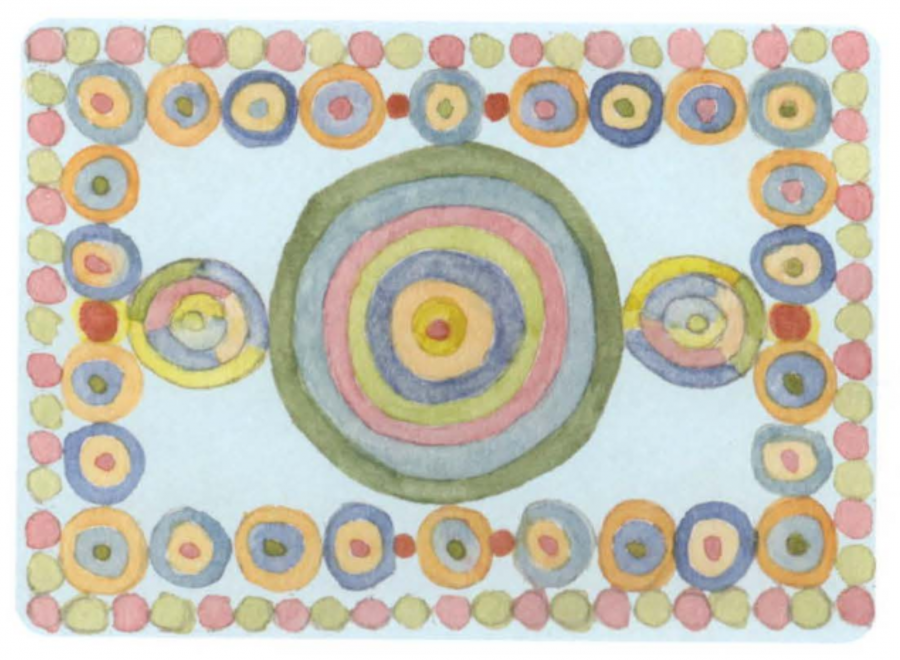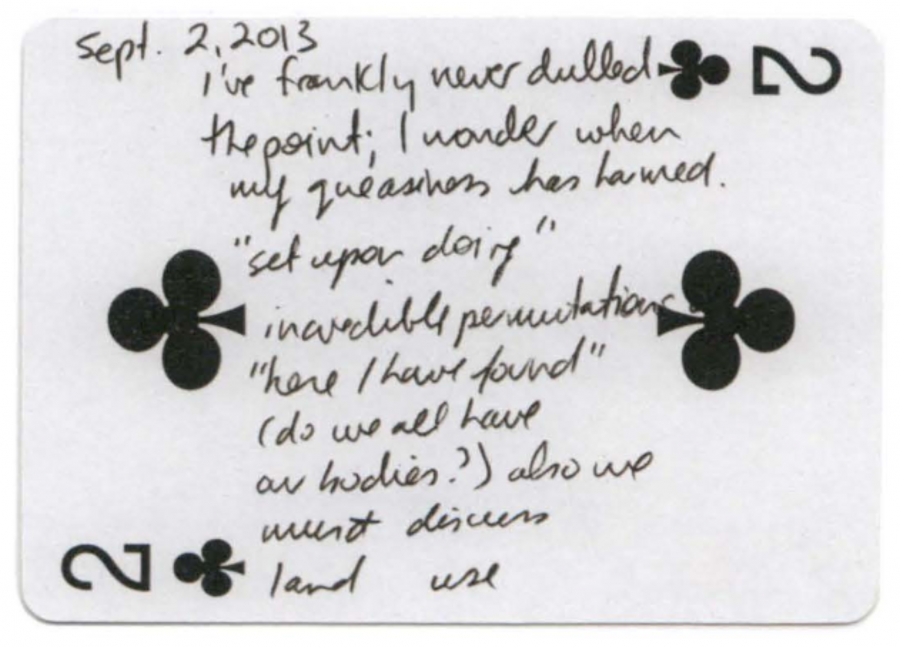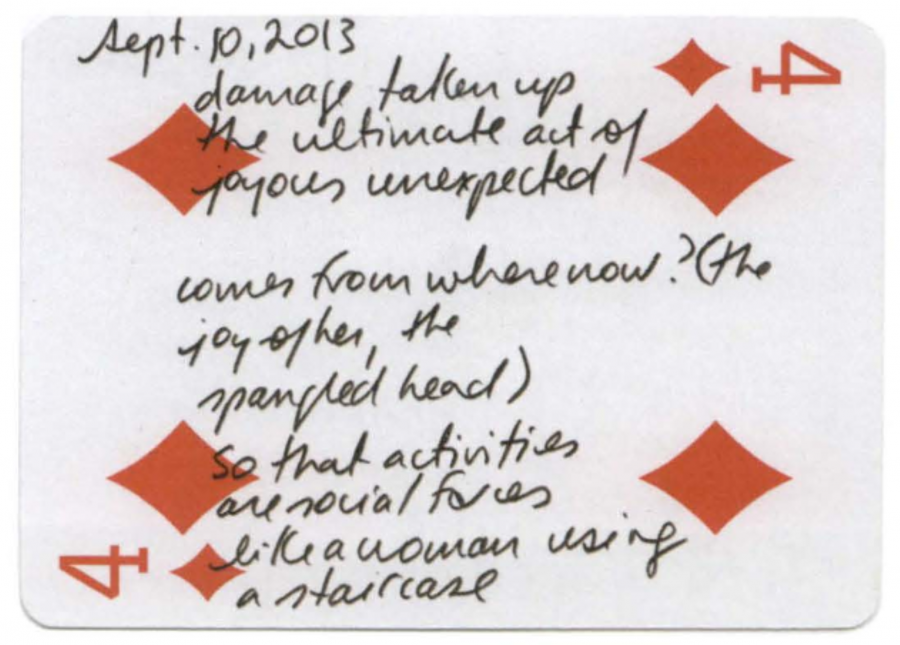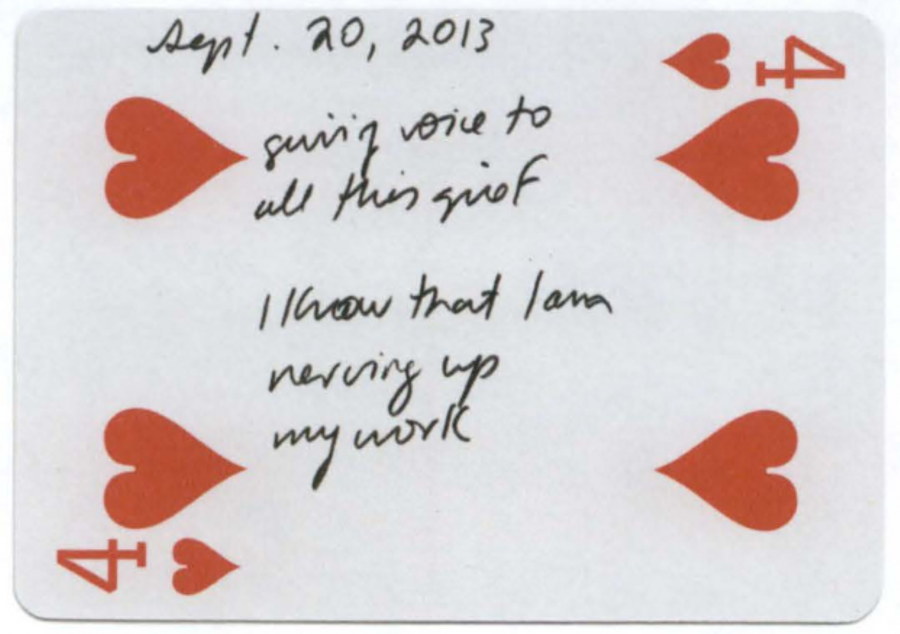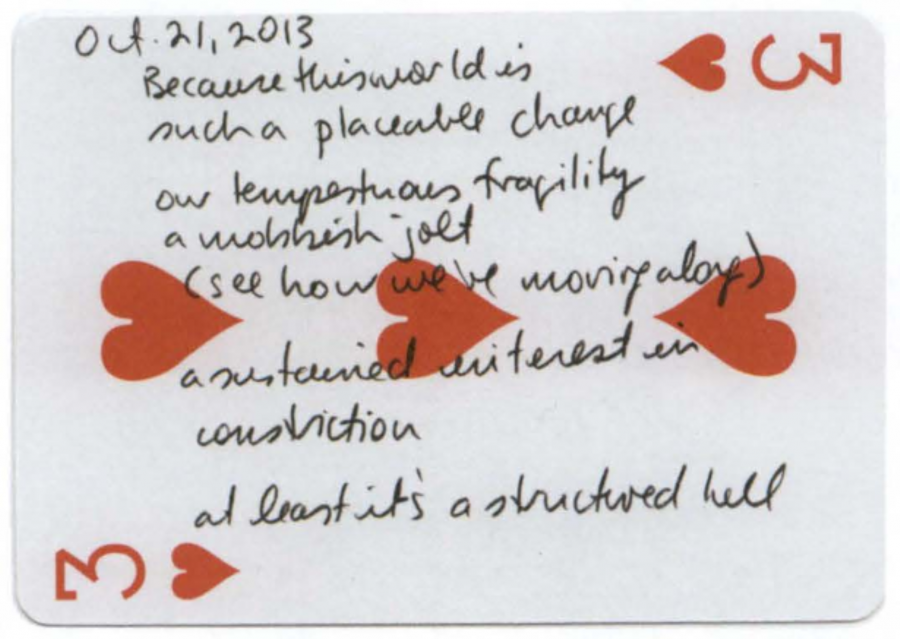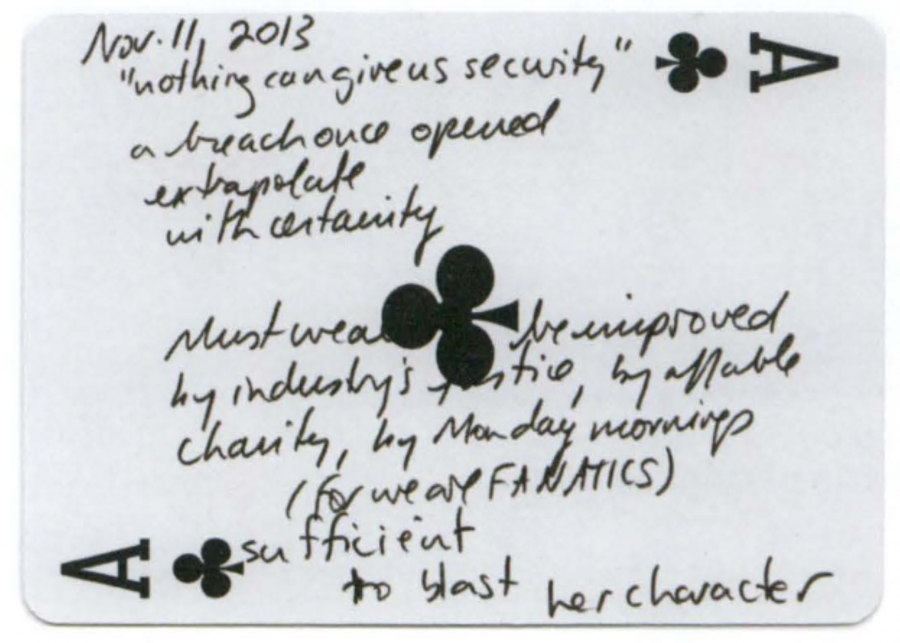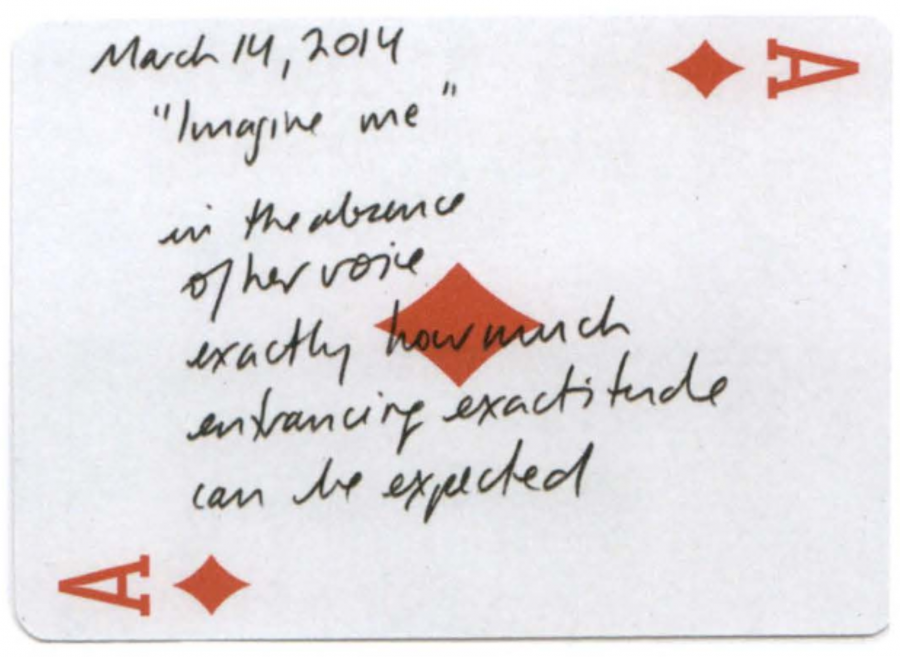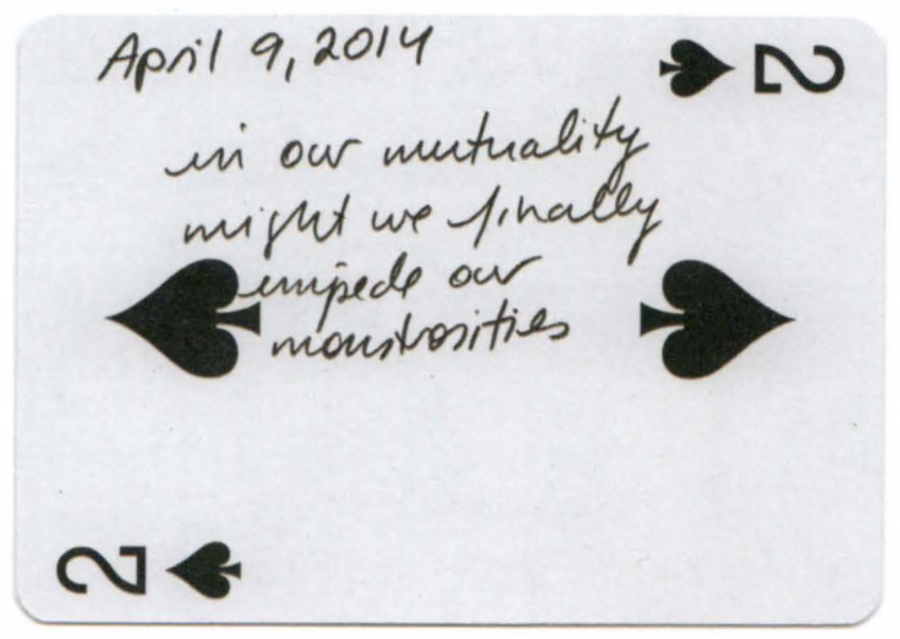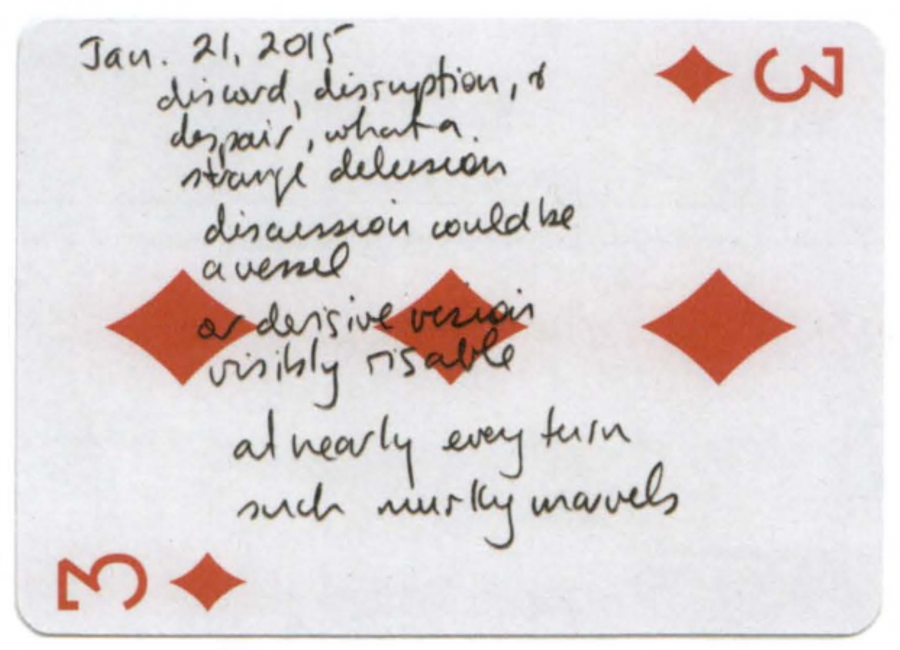This piece originally appeared in Issue 3.28 (Winter 2016).
In 1776, at the age of 64, an embittered Jean-Jacques Rousseau took to rambling. Feeling rejected, neglected, and condemned, he turned his back on the society in which he had never managed to feel at ease, and found peace in wandering the fields outside Paris, noting interesting flora and fauna, and ruminating on his life and career. Rousseau jotted down his musings on playing cards he carried in his pocket; these notes would form the basis for his last book, Les Réveries du promeneur solitaire, translated as Reveries of the Solitary Walker (or as Solitary Walker). Unfinished at his death and published posthumously in 1782, the Reveries reiterate and meditate upon many of Rousseau’s central themes: the joys of solitude, the corrupting influence of society, the fragility of happiness and of human relations, and the great, healing solace of nature (not to mention his obsession with enemies and persecution).
Like Rousseau, I too have taken to wandering, although I do so on my bicycle. I find cycling particularly conducive to a slow, non-deliberate thinking, an almost sub-conscious contemplation. Biking around Vancouver, my mind often returns to several issues I have long struggled with, my own version of Rousseau’s obsessions. I wonder about whether it’s really possible or useful to try and live counter to capitalism’s omnipotence in our hyper-capitalist society; about how to live a sustainable life; about how nurturing can truly be valued, and indeed about what value is, and how it gets defined, and to what end. (I also often wonder about more mundane things, like what we might make for supper.) What is to be done, I often wonder?
In homage to Rousseau’s Reveries’ playing-card origins, my Reveries of a Solitary Biker is divided into four suites and printed as a deck of cards, designed by visual artist Kelly Haydon. The cards will be set to music by my frequent collaborators, clarinetist François Houle and composer Jacqueline Leggatt. We will perform the piece by asking audience members to draw a card from the deck; the card drawn will be performed, and we will then ask for another card. Each performance will thus be unique, incomplete, and inconclusive.
